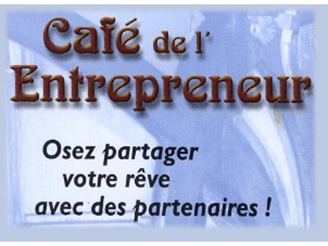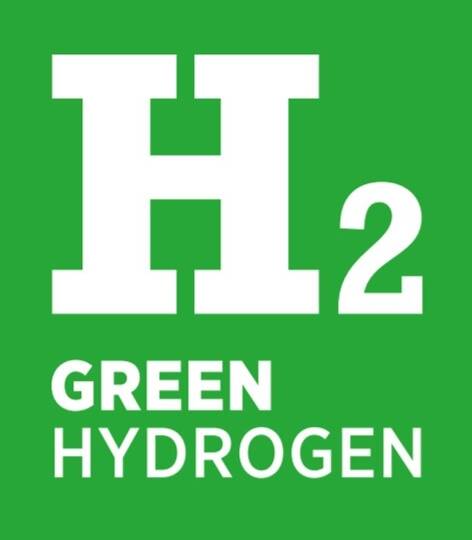Strategische Agenda EU-AU 2026: beleid radicaal heroverwegen
Om haar huidig welvaartsniveau te consolideren, moet Europa zich, met de meest urgente en belangrijkste prioriteit, richten op investeringen in de maakindustrie in Afrika
DE NIEUWE GROEIMARKT VAN DE WERELD
Politiek Europa ziet dit nog als een verre toekomst
Kortetermijnoplossingen verdringen acties op lange termijn
Voor een doorbraak in de relaties Afrika-Europa - "uit wederzijdse noodzaak!" – dankzij een slimme combinatie van maatregelen voor de beteugeling van alle elementen van de ongeziene en verweven polycrisis "klimaat, energie, vergrijzing Europa, oorlog in Europa, conflict VS-China, demografische explosie Afrika". Doel: Afrika in staat stellen haar moderne maakindustrialisatie te realiseren, de EU-mid-tech economie van de vorige eeuw duurzaam vernieuwen, Poetin het zwijgen opleggen, de hele planeet redden.
VIJF PRIORITEITEN VOOR EUROPA EN AFRIKA
- EEN GESTUURDE WIJZIGING VAN DE MENTALITEIT VAN DE "WHOLE-OF-SOCIETY": "AFRIKA IS NIET WAT JE DENKT DAT HET IS". Europa kent het "andere" Afrika niet. Afrika is bevreesd voor blijvende EU-dominantie.
- INDUSTRIALISATIE versus MIGRATIE. Duizend industriële kmo-partnerschappen Afrika-Europa stimuleren de geavanceerde maakindustrialisatie van Afrika en voorkomen gedwongen migratie van een miljard jongeren (2044) op zoek naar een perspectief in Europa.
3. KLIMAAT & ENERGIE. BUSINESS EUROPE onderhandelt met DR Congo de realisatie van het GRAND INGA 44 GW waterkrachtproject. Energiegulzige mid-tech industrieën verhuizen naar Afrika, rijk aan groene waterstof, en versnellen een Europees aggiornamento naar competitieve klimaatvriendelijkere en recycleerbaardere hightech industrieën en verwante diensten.
4. GEOPOLITIEK. Een intens informeel industrieel partnerschap tussen de AU en de EU creëert een nieuwe, machtige geopolitieke entente tussen buren met historisch-culturele banden.
5. GEEN NIEUWE EU-PROGRAMMA'S "VOOR AFRIKA" zonder een breed voorafgaand overleg met Afrika.
Vijf prioriteiten geïnspireerd door:
- De verwachtingen van 900 "onderbenutte" maar mondige, jonge "Masters"-ingenieurs, economen, agronomen en computerwetenschappers over de voorbije tien jaar geïnterviewd, in zeven Sub-Saharalanden. (Afrika's toekomstige influencers/beleidsmakers). Volgens hen is alleen de lokale transformatie van Afrika’s bodemrijkdommen in staat er ieder jaar 20 miljoen decente, formele banen te creëren en de plaag van gedwongen migratie te beteugelen. Zij betreuren het dat het onderwerp "Afrika's maakindustrialisatie" niet met de grootste spoed bovenaan de agenda's van Europa en van het officiële Afrika staat.
- Recente ontmoetingen met 200 gevestigde ondernemers in België, Duitsland, Nederland en Frankrijk: zij zijn er vooringenomen van overtuigd dat gans Afrika onstabiel en corrupt is en niet klaar voor zijn moderne industrialisatie. Europa kent "het andere Afrika" niet en zijn opgeleid demografisch dividend, zijn abundante hernieuwbare energiebronnen, zijn opkomende vrije markt van de wereld en zijn ontluikende democratieën.
- Afrikaanse academici, die de geschiedenis van de industrialisatie van het Westen en Zuidoost-Azië bestudeerden, stellen dat investeringen in de productieve economie leiden tot investeringen in infrastructuur (EU-Global Gateway), decent bestuur, digitalisering, de SDG's, en niet andersom.
Five priorities: more details
- A GUIDED CHANGE IN THE MENTALITY OF “THE WHOLE-OF-SOCIETY” . Authorities organise a guided change in the mentality of " the whole-of-society, including entrepreneurs, politicians and academic, certainly in Europe but as well in Africa (town-hall debates, media?)



- In Europe. Theme “Africa is not what you think it is”. Authorities organise all over Europe hundreds of town-hall debates on the assets of neighbouring Africas: “Its educated demographic dividend in its prime of life, abundant renewables, a new growth market with 25% of the world's population for upscale European products and services, emerging democracies” (*).
- In Africa. Theme “Entrepreneur, dare to share your dream with international partners”. Authorities organise all over Africa hundreds of town-hall debates on “why” and “how” to succeed in “win-win” international industrial SME-partnerships accelerating the structural modernisation of Africa’s agro-food and manufacturing industries and the creation of millions of jobs in a formal economy.
- World. Containment of climate problems, pandemics and conflicts.
More: EU governments only must promote the “other” Africa. That’s all
2. INDUSTRIALISATION : A THOUSAND AFRICA-EUROPE INDUSTRIAL SME-PARTNERSHIPS in 2025, prevent one billion young African people, at 14 km from Europe, risking their lives, in search of a perspective in Europe in 2045.

Raychelle Omamo, Cabinet Secretary, Kenyan Ministry of Foreign Affairs
‘We realise in Africa that we don’t make enough, that we are not industrialised. Therefore, we need new partnerships that will fundamentally change Africa’s integration into the world market. Africa cannot be that continent that is simply there to produce raw materials for others’.
CSIS Africa Program on January 28, 2022 https://www.csis.org/events/prioritizing-partnerships-africa
As long as the asymmetry in prosperity between Europe and Africa persists, it remains unlikely that legal migration, fences, pushbacks, dispersal of migrants across Europe, reception in North Africa, silencing of smugglers and an adequate return policy will be enough to prevent hundreds of millions of young Africans from risking their lives in the Mediterranean Sea or in the Atlantic Ocean in search of a decent life in Europe. It is in Europe's interest that neighbouring Africa, which will soon account for a quarter of the world's population, urgently provides jobs for its twenty million young people who enter the labour market every year, thanks to the local transformation of its natural resources. Europe should refrain from calling on Africa mainly as a source of natural resources, including climate-strategic ones, or to fill vacancies.
Both continents benefit from the blending (métissage) of European manufacturing experience and Africa’s market knowledge, including legal migration. But above all, Europe needs new growth markets. Therefore it is in Europe's interest that Africa only after its own manufacturing industrialisation exports part of its abundance of natural resources, renewables and human competences.
Africa's industrialisation is reducing poverty, conflicts and forced migration, as well as creating a huge new market for innovative EU-products and services with high added-value.
3. CLIMATE & ENERGY. The EU, BUSINESS EUROPE (the EU-umbrella of country businessorganisations) and the EU-financial institutions urgently negotiate with RD Congo to execute its 44 GW GRAND INGA hydropower project


Europe should prepare for it that, despite mega-subsidies for CO2 capture and storage, shareholder activists sooner rather than later force energy-guzzling industries (steel, fertilisers, aluminium, cement, ethylene, glass, …) to move to regions close to the source of abundant green electricity and green hydrogen and in the neighbourhood of future growth-markets.
When fully deployed, the Inga hydroelectric power plant, downstream the Congo River at 130 km from the deep-sea port of Banana, has a potential capacity of 44 GW (44 nuclear reactors), almost double the world's largest hydroelectric power plant, the Chinese 22.7 GW Three Gorges Dam. Inga makes use of differences in the level of the Congo River with less need for dams and less complex consequences for the population, geology, the environment and biodiversity than the Three Gorges Dam.
The industrialisation of the Banana-Boma-Matadi-Inga region, thanks to its huge eternally renewable green energy sources and deep-sea port, is capable:
- to supply new mega-metropoles of West and Central Africa with steel, cement, petrochemicals and fertilisers, with negligible CO2 emissions; the shipment is also powered by Inga hydrogen;
- to act as a driver of labour-intensive manufacturing industrialisation in the DRC and the whole of Africa through the local, climate-friendly transformation of African raw materials and massive partnerships between African and European industrial SMEs.
More: GRAND INGA hydropower project DRCongo = 44 nuclear reactors
4. GEOPOLITICS. AFRICA: A WAY OUT OF EUROPE'S GEOPOLITICAL BALKANISATION



World population 2050:
Africa 25%, Europe 7%
Africans could win the new scramble for Africa
’Hey Vladimir, I’ll be with you in a minute once I’ve finished with whoever this fellow is.’
The size of the EU market, to which the world wants access, is no longer sufficient to consolidate its influence (cf. Ukraine, Gaza). Massive AU-EU industrial partnerships create a powerful geopolitical entente between neighbours with cultural-historical ties capable of taking the lead in global consultations on issues that matter (climate, energy, human behavioural change, international conflicts). In the actual new scramble for Africa, Africa can choose between the West, the East and the Global South.
More: Europe needs Africa more than the other way around
“Europe and Africa can change global politics in a ‘revolutionary’ way”. Mogherini 11/2018
5. NO NEW EU PROGRAMMES "FOR AFRICA" without a real and broad prior deliberation with Africa
A fundamental shift in the EU approach to African partner countries:
- Africa wants to add a more pronounced first pilar to the EU-Global Gateway programme: “Investments in manufacturing industrialisation” (even if digital transformation, green energy, transport, education and health will strengthen Africa’s advanced industrialisation);
- Africa complains that the Global Gateway has been launched without prior consultation with this continent;
- Africa fears that some corridors are closely linked to critical raw materials and green energy needed for the survival of industry in Europe;
- leading African scholars know that growing fast in Africa is imperative;
- leading African scholars label the Global Gateway € 150 billion investment strategy for Africa “a joke”;
- says that the EU should not hide its well-accepted win-win partnership nature for Europe of investments in the Global Gateway, replacing its stigmatising “donor” narratif, but should refrain from criticising and patronising moralising;
- African SME’s do not want the new moralising EU-Due diligence directive; Africa feels mature enough to implement itself limits to children labour and does not need advice from foreigners.
Notes
-
An "empowered" Africa says to Europe: ‘Africa is endowed with an important educated middle class (2035: the same number of highly trained people in their prime of life as China), massive natural resources, also climate strategic resources, 50% of all renewable energy in the world (35% of the green hydrogen production potential at €2/kg), 60% of the world's agricultural land, the market of the future – 25% of the world's population – and nascent democracies with fairly strong institutions and unlocked industrial sites. For now, Europe has a head start with its practice of modern and complex international industrial value chains. Let's discuss how, for mutual benefit, Africa and Europe together, can transform our African natural resources into exportable products, create every year ten million formal jobs in Africa, prevent inequalities, conflicts, forced migration and global warming. Africa's advanced manufacturing industrialisation will accelerate the creation of the world's largest AfCFTA free trade area, a huge market, also for innovative European products and services with high added value. Africa and Europe, we know and understand each other, let's get to work urgently’.
-
Why European companies should be present in Africa. ‘The growth engine for Ivory Coast tomorrow will come from the transformation of raw materials and it has to go through a joint venture between Europe and the Ivory Coast. When you invest, make profits you can repatriate without any problem the part of your profit you would like to repatriate. We believe this plays a role in reassuring investors’. (https://youtu.be/oJgnHWYvI30 BUSINESS EUROPE 27/6/2019).
(*) The Economist Democracy Index 2022 Sub-Sahara Africa (Ranking Feb 1th 2023). 1. Mauritius; 2. Botswana; 3. Cabo Verde; 4. South Africa; 5. Namibia; 6. Ghana; 7. Lesotho; 8. Malawi; 9. Madagascar; negal; 11. Zambia; 12. Liberia; 13. Tanzania; 14. Kenya; 15. Sierra Leone; 16. Uganda; 17. The Gambia; 18. Côte d’Ivoire; 19. Benin; 20. Nigeria.

Maak jouw eigen website met JouwWeb